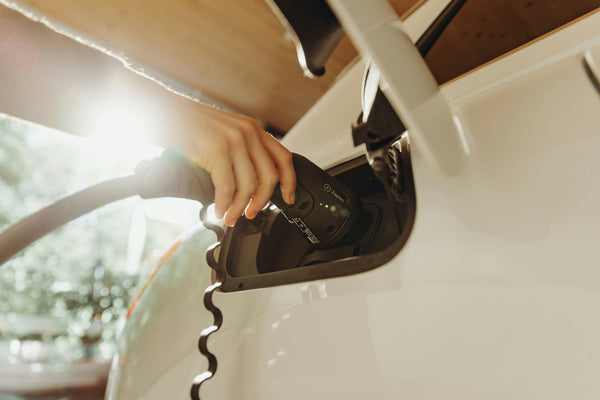
How Long Does it Take to Charge an Electric Car?
As electric vehicles (EVs) become more mainstream, and customers need to charge them both at home and work, one of the most common questions ourselves and installers hear is, “How long does it take to charge an electric car?” Whether you’re new to EV ownership with best-selling chargers, or simply considering the switch, understanding charging times is essential.
The answer isn’t one-size-fits-all; it depends on several key factors, including the size of an EV’s battery and the power output of your charger. In this guide, we’ll break everything down so that you can make sense of it all and learn how to speed up charging by understanding how long to charge an EV.
What Affects the Time to Charge Electric Cars?
Electric car charging times vary depending on three main factors: battery size, charging rate, and the percentage of the battery being topped up.
Battery Capacity: EV batteries range from around 24kWh to over 100kWh. The larger the battery, the longer it takes to charge, particularly at lower power levels.
Charger Power Output: The charger’s kW rating plays a critical role. A 3.6kW charger will charge slowly over 12-24 hours, while a 22kW three-phase system or a public 150kW ultra-rapid charger can reduce the time significantly.
Vehicle’s Onboard Charger: The vehicle itself determines how much power it can accept. Even if you install a 22kW charger, if the vehicle’s onboard charger maxes out at 7kW, that will be the charging limit.
Environmental & Usage Factors: Battery temperature, cable quality, and charge level all affect charging time. EVs typically charge fastest between 20% and 80%, and many onboard systems taper the speed after 80% to protect battery health.
Time to Charge Electric Cars: Real-World Estimates
Here’s a breakdown of the estimated time to charge electric cars from 20% to 80% depending on the charger type. This helps both end users and installers align expectations with the equipment:
|
Charger Type |
Power Output |
Charging Time (20%-80%) |
|
Standard 3-pin plug |
3 kW |
12-24 hours |
|
7 kW |
6-10 hours |
|
|
Fast chargers (3-phase) |
22 kW |
2-4 hours |
|
50 kW |
45-90 minutes |
|
|
Ulta-rapid charger |
150+ kW |
20-40 minutes |
Installers: Ensure the property’s incoming supply can support the charger. Single-phase homes will typically max out at 7.4kW unless upgraded.

Example- Charging a Tesla Model 3
To illustrate, we have explored the charging speeds for a Tesla Model 3 Long Range (75kWh).
-
With a 3kW socket, a charge from 20% to 80% could take over 13 hours
-
On a 7kW wallbox, it can be up to 5-6 hours
-
With a 22kW 3-phase system, that drops to around 2-3hours (if supported by the onboard charger)
-
A 150kW rapid charger can charge in just 20-25 minutes
This variation highlights the importance of selecting the right equipment, not just for the vehicle, but also for the property or the site where it is installed.
Want to Charge Faster? Here’s How.
Whether you’re a homeowner looking to charge overnight or a trade professional advising clients on fast charging solutions, there are a few practical ways to reduce EV charging time:
Install the Right Charger
For homeowners, a 7kW charger is usually the ideal- fast, affordable, and compatible with most UK properties.
Installers should always assess the property’s electrical load and recommend the most suitable solution.
Explore Volta EV’s home chargers.
Use Rapid Public Chargers When Needed
For top-ups during travel or business use, rapid chargers offer unbeatable convenience.
Installers working on commercial or public-access sites should consider a 22kW+ or DC rapid system with load balancing.
See fast charging options for commercial instals
Read: How to Cut Your Charging Time by 50% with Fast Chargers
Educate About Smart Charging
Smart chargers allow users to schedule charging for off-peak hours, monitor usage, and integrate with solar systems, reducing cost and carbon emissions.
Installers should recommend smart-enabled units for future-proofing and faster charging.
How Long to Charge a Car Battery- The Final Thoughts
There’s no single answer to “how long to charge a car battery”- it depends on the battery size, charger output, and the vehicle itself. But one thing is clear: with the right setup, EV charging can be simple, quick, and convenient.
Whether you’re installing for a customer or exploring options for your EV, choosing the right charger is essential. At Volta EV, we make that process easy.
Browse our full range of EV chargers
|
Volta EV proudly supports both end users, electrical wholesalers, online retailers and the UK installer network.
|

